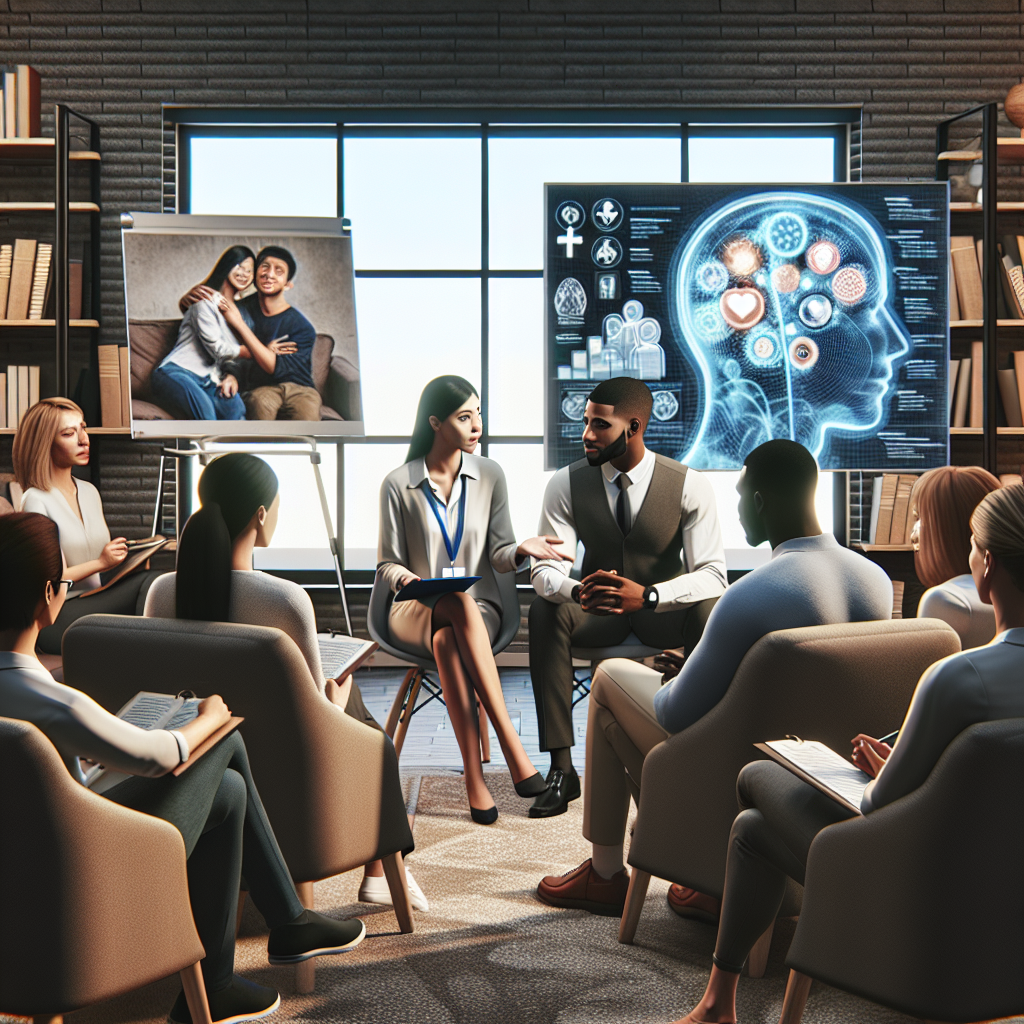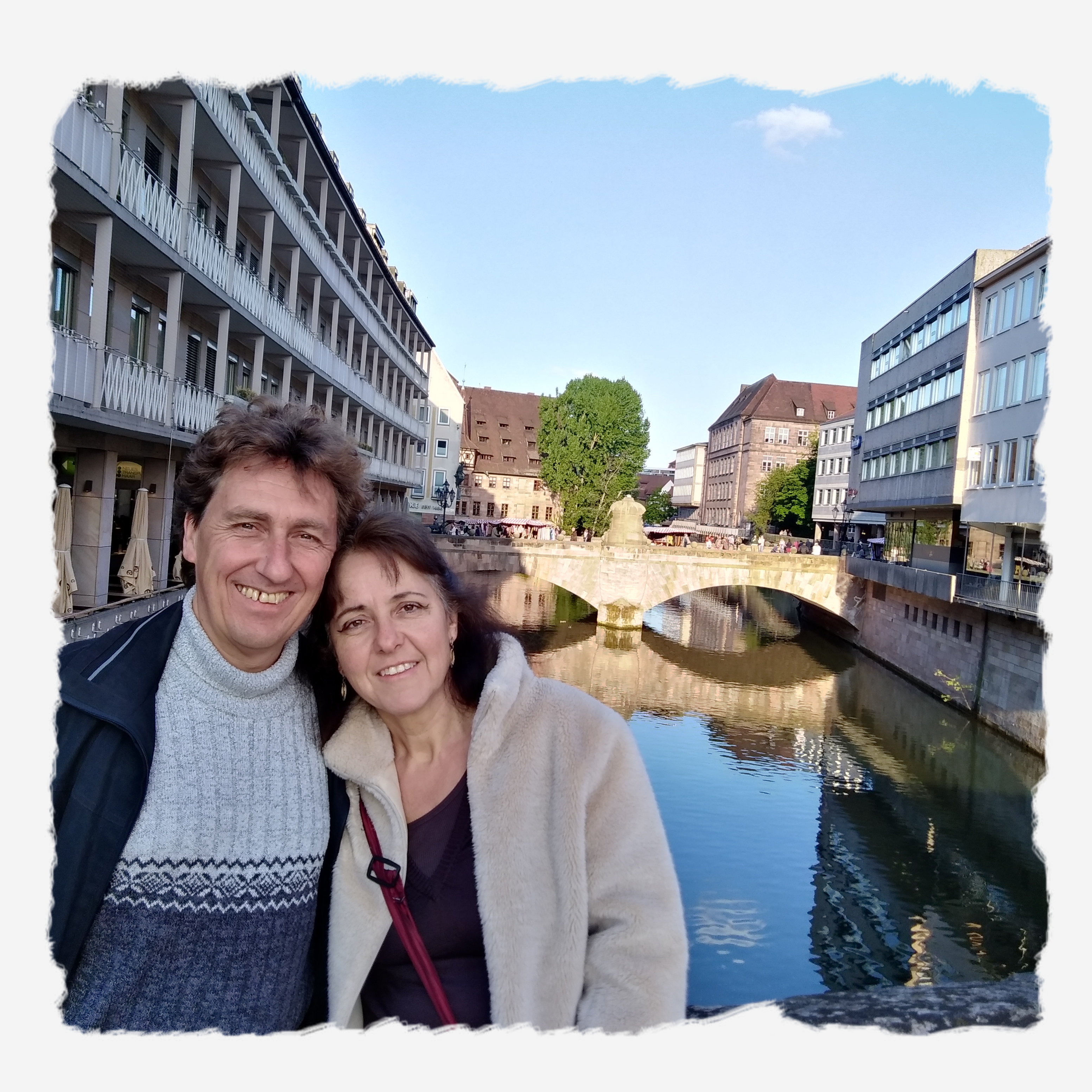Couples therapy is a specialized field. It requires a unique set of skills and knowledge.
Training in couples therapy is essential for mental health professionals. It equips them to effectively navigate the complex dynamics of couple relationships.
This article aims to highlight the key skills needed for couples therapy training. It provides insights into what comprehensive training programs should include.
Whether you're a therapist, counselor, psychologist, or social worker, this guide is for you. It's also useful for educators and trainers designing couples therapy courses.
We'll explore various aspects of couples therapy. From understanding different therapeutic approaches to managing conflict and fostering intimacy.
Join us as we delve into the essential skills for couples therapy training. Let's enhance our ability to support couples in their journey towards healthier relationships.
Couples therapy focuses on understanding two individuals in a relationship. This requires a delicate balance.
Therapists must consider each partner's perspective. They learn to navigate different emotions and experiences.
A key challenge is addressing the dynamics between partners. Power imbalances and communication patterns often come into play.
Effective couples therapy training teaches therapists to manage these complexities. They learn to guide couples toward mutual understanding and growth.

Different theories guide the practice of couples therapy. Each offers unique tools for understanding and improving relationships.
One popular approach is Emotionally Focused Therapy (EFT). EFT centers on emotions and attachment, helping partners bond more deeply.
Another widely-used method is The Gottman Method. This approach relies on research-based interventions to enhance relationship stability.
Imago Relationship Therapy focuses on identifying unmet needs from childhood. It facilitates healing and empathy between partners.
Key approaches include:
Emotionally Focused Therapy (EFT): Focuses on emotional bonds.
The Gottman Method: Utilizes scientific research for relationship insights.
Imago Relationship Therapy: Addresses past emotional wounds.
Understanding these theories enriches therapy practice. It equips therapists with diverse tools to address various relationship issues.
By mastering these methods, therapists can tailor strategies. Thus, they effectively meet each couple's unique needs.
Effective communication is key to healthy relationships. Couples therapy focuses on enhancing this vital skill.
Therapists teach partners how to listen actively. They learn to express emotions and needs clearly, minimizing misunderstandings.
Conflict resolution is another critical area. Couples therapy equips partners with strategies to de-escalate conflicts.
Managing disagreements peacefully builds stronger bonds. It promotes mutual understanding and respect in the relationship.
The goal is to transform conflict into an opportunity for growth. Therapy provides a safe space to practice these skills.
By mastering communication and conflict resolution, couples can strengthen their relationship foundation. This leads to lasting harmony.
Trust is a cornerstone of any successful relationship. Rebuilding trust can be a challenging yet rewarding process.
Couples therapy often addresses breaches of trust, guiding partners through healing steps. This might involve acknowledging past hurts.
Intimacy goes beyond physical closeness; it's about emotional connection. Therapists help couples cultivate a deeper understanding of one another.
By exploring emotions and vulnerabilities together, couples can nurture intimacy. Open communication becomes a bridge to reconnect.
Therapy sessions create a safe environment for partners to express their fears and hopes. This honest dialogue fosters intimacy.
Ultimately, building trust and intimacy strengthens relational bonds. It allows couples to move forward with confidence in their partnership.
Empathy is vital in couples therapy. It helps therapists understand both partners’ perspectives.
Feeling heard and understood can defuse tension. It encourages partners to open up about their feelings.
Neutrality is equally important. A therapist must maintain an unbiased stance.
Remaining neutral allows therapists to mediate fairly. This helps in guiding couples towards mutual understanding.
By balancing empathy and neutrality, therapists foster a supportive environment. It allows honest communication.
This balance aids in addressing conflicts effectively. It ensures that neither partner feels judged or blamed.
Professional ethics are the backbone of effective therapy. They guide therapists in maintaining integrity and trust.
Clear boundaries are essential in the therapeutic relationship. They help avoid dual relationships that could cloud judgment.
Confidentiality is a key ethical principle. It ensures clients feel safe sharing sensitive information.
Therapists must also manage countertransference. Reflecting on their own biases aids in maintaining objectivity.
Cultural competence is crucial in couples therapy. It involves understanding diverse cultural backgrounds and their effects on relationships.
Family systems theory offers insight into relational dynamics. It highlights how family influences behavior patterns in couples.
Therapists must recognize cultural nuances. This awareness helps address unique challenges and promote effective communication.
Acknowledging family systems enables therapists to see the bigger picture. It allows for a more comprehensive approach to therapy.
Ongoing education is essential in couples therapy training. New research and methods continually emerge, enhancing therapy techniques.
Therapists need supervision for professional growth. Supervision offers a space for reflection and skill enhancement.
Learning doesn't end with initial training. Engaging in workshops and seminars fosters continuous development.
Staying informed benefits both therapist and clients. It ensures the delivery of up-to-date, effective therapeutic strategies.
Technology is transforming couples therapy training. Online resources provide flexible learning opportunities for busy professionals.
Virtual courses offer comprehensive couples therapy courses. These platforms host a wealth of information and tools for practitioners.
Digital tools can enhance therapy sessions themselves. Apps for communication exercises or tracking progress are becoming popular.
Therapists must adapt to new tech advancements. Embracing these changes supports better therapeutic outcomes for couples.
The journey in couples therapy training never truly ends. Every session provides new insights and challenges. This continuous learning is vital for growth.
Staying updated with current research is crucial. Engaging with professional communities fosters shared knowledge and experiences.
Ongoing education enhances therapy effectiveness. Advanced training, certifications, and workshops offer fresh perspectives. They refine your skill set.
Embrace the evolving nature of the field. Constant adaptation and learning ensure that your practice remains relevant and impactful. Through dedication, therapists can significantly improve their craft.
Make your appointment now
We take only 5 couples with us
Reserve your spot now!
Over the years, the infatuation often gives way to living side by side as partners. In everyday life with children, a career and different leisure activities, you lose the connection.


Susana and Markus Kessler have been in a happy relationship for more than 25 years. To ensure that their partnership continues to grow, they have repeatedly attended coaching and training sessions on all aspects of their relationship, including communication, money management and parenting.
They have built up several businesses and have become financially free as a result. They have also attended countless coaching and training sessions for their business on sales, marketing, social media, business development and investing.
They have been trained coaches since 2015 and are passionate about passing on their knowledge. Their coaching approach is practical, solution-oriented and individually tailored to the needs of their clients. They offer comprehensive support in the areas of personal development, relationship building and maintenance, financial education and entrepreneurial growth.
Susana and Markus offer various coaching formats to ensure maximum flexibility for their clients. These include:
With their many years of experience and in-depth knowledge, Susana and Markus Kessler help people to strengthen their relationships and make the most of their lives and opportunities.

Our knowledge comes from 25 years of relationship experience as well as training and further education with the world's best in their field, including the NLP Academy Switzerland, J.T. Foxx, T. Harv Eker, Landmark Wordwide, John Kehoe, Maja Storch and many more.

Every partnership is different. We recognize your individual personalities and work with your own resources to support you perfectly on your path to the perfect partnership.

Anyone who talks about their relationship deserves absolute discretion and an atmosphere of trust. That's why we offer you an empathic environment in which you feel safe and secure and can speak openly with each other.